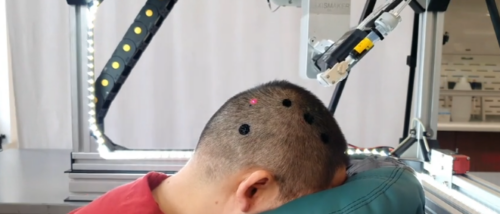Tattooed EEGs, two Parkinson’s possibilities, colon cancer might be vax-able, and more
10 Dec 2024
Posted by Andrew Kantor
A hint of a colon cancer vaccine
Of all the strains of E. coli that might live in your gut, two of them have an interesting adaptation: They produce colibactin, a carcinogen.
Researchers at the Wellcome Sanger Institute were curious about this, especially in light of rising rates of colorectal cancer. So they looked to see who was more likely to have these particular strains in their guts. What d’ya know — they’re more prevalent in Western countries with high (well, higher) rates of colorectal cancer.
This means that if there really is a fairly direct connection between that bacteria and colorectal cancer, it might be possible to develop a vaccine — or simply some probiotics — to reduce or eliminate those strains.
B vitamins and Parkinson’s
It’s a GPhA Buzz axiom that just about every medical condition seems to involve either gut bacteria or inflammation.
Take Parkinson’s. Japanese researchers found an interesting correlation: People with the disease had lower levels of gut bacteria that synthesize vitamins B2 (riboflavin) and B7 (biotin). Lacking those vitamins, they found, weakened the intestinal barrier — meaning more toxins could enter the bloodstream and cause Parkinson’s inflammation.
We’d like to say there was a huge breakthrough — that B-vitamin supplements reduced Parkinson’s symptoms. Unfortunately they haven’t gotten that far … yet. They agree, however, that “Supplementation therapy targeting riboflavin and biotin holds promise as a potential therapeutic avenue for alleviating [Parkinson’s disease] symptoms and slowing disease progression.” (And they think their findings might provide more clues to Parkinson’s progression.)
Speaking of Parkinson’s…
There are treatments for the physical effects of Parkinson’s disease, but not for the cognitive decline. That might change, thanks to a protein called PNA5.
According to University of Arizona researchers, it seems to reduce the particular kind of inflammation associated with Parkinson’s; it “dials back the microglia’s overly active immune response and brings it closer to a normal state.”
It’s still in the early stages of testing, but signs, they say, are hopeful.
Short takes
HPV vax is working. A new study out of the Medical University of South Carolina found that, from 2013 to 2021, cervical cancer among American women under 25 declined by 62%, “a finding largely attributed to the wide availability of HPV vaccination for this age cohort.”
The more you know. Did you know that alcohol is a serious risk factor for cancer? If not, you’re in the majority, according to a survey from the University of Pennsylvania. “Six in 10 surveyed were unaware that regular alcohol use increases odds for developing cancer.” (Worse, 20% of people thought alcohol could lower your risk.)
Prostate cancer ‘flip’
One of the ways to fight prostate cancer is to block a particular molecular signalling pathway that seems to help tumor growth. That pathway is started by a protein called glycoprotein 130 (GP130), and it eventually activates a molecule called STAT3 — and STAT3 is critical to tumor growth.
So if you stop GP130, that cuts back on STAT3 and slows the tumor’s growth … right? That was the assumption, until Swedish researchers questioned it. What if STAT3 didn’t do what we thought?
And that’s exactly what they found to be the case. When they deliberately activated that GP130 pathway (in mice), it increased STAT3 levels as expected. But then the twist: “They could then see that the result was that the growth of the tumour was clearly slowed down in the mice due to the activation of STAT3” (emphasis ours).
Then they looked at human tissue samples and found the same thing: “those high levels of GP130 positively correlated with better survival.”
What’s next? That old mantra: More research is needed. In this case, it’s to confirm the results and see if this opens a new, ‘opposite’ way to treat prostate cancer.
Resistance gets worse
According to the WHO, antimicrobial resistance (AMR) is getting so bad that in the next 25 years it could lead to more deaths worldwide than cancer does. One solution might be better vaccinations to reduce the use of antibiotics.
As one virologist put it:
“When vaccines prevent illness, they reduce the need for unnecessary antibiotic use. In the past, antibiotics were frequently prescribed for respiratory infections — typically caused by viruses — leading to misuse and heightened resistance. By preventing viral infections through vaccines, we reduce inappropriate antibiotic prescriptions and, subsequently, AMR.”
Non-pharma cool medical story of the week
The old way of monitoring brainwaves: a whole lot of wires attached to a complicated, finicky head covering, with EEG sensors glued to the patient’s head:
The new way: temporary tattoo sensors printed on the scalp — they can even work through hair. “[O]nce dried, it works as a thin-film sensor, picking up brain activity through the scalp.”
Even better, the tattoos last longer than the traditional sensors, which dry out and lose connectivity after a few hours.




